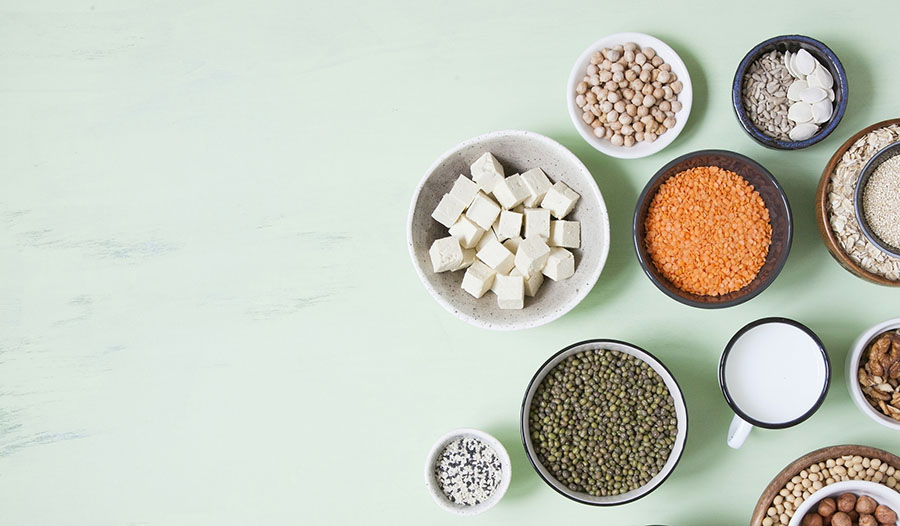Ovaj nedostatak hranjivih tvari može pridonijeti niskoj razini energije

Osjećate li se umornije nego inače?
Jeste li doživljavali povećani osjećaj umora? Osjećate li se iscrpljeno više nego inače i pitate se može li postojati temeljni razlog? Mnogi od nas se redovito suočavaju sa užurbanim rasporedom i multitaskingom, što često krivimo za osjećaj umora. Možda postoji još jedno objašnjenje. Zapravo, nedostatak željeza može biti krivac. Tako je: željezo može biti razlog zašto iznenada ne možete držati oči otvorene tijekom onoga što ste nazvali "popodnevnim padom". "
Kakve veze željezo ima sa zdravljem?
Željezo je mineral koji je kritičan za održavanje mnogih normalnih funkcija vašeg tijela, uključujući proizvodnju hemoglobina, koji je protein koji prenosi kisik u vašoj krvi i isporučuje ga tjelesnim tkivima iz pluća. Željezo daje ovom proteinu, hemoglobinu, snagu za nošenje kisika u krvi. Kisik je vrlo važan u pružanju odgovarajuće energije stanicama i tkivima u cijelom tijelu, a smanjena razina kisika dovodi do umora. Željezo također doprinosi zdravlju kože, kose i noktiju.
Jeste li u opasnosti od nedostatka željeza?
Nedostatak željeza izuzetno je čest i često se javlja kod žena, posebno kod žena s menstruacijom, osobito ako su menstruacije teške. Žene koje su trudne ili doje ili one koje su nakon porođaja također su izložene povećanom riziku od nedostatka željeza. Određene upalne bolesti crijeva, poput Crohnove bolesti ili ulceroznog kolitisa, također vas mogu dovesti u povećani rizik od nedostatka željeza. Vegetarijanci, vegani i drugi koji ne konzumiraju hranu bogatu željezom također mogu imati nižu razinu željeza. Djeca koja redovito piju više od 24 unce kravljeg mlijeka također su izložena vrlo visokom riziku od nedostatka željeza.
Koji su znakovi i simptomi nedostatka željeza?
Simptomi nedostatka željeza uključuju neobjašnjivi umor ili nedostatak energije, kratkoću daha, generaliziranu slabost i ubrzan rad srca. Ili možete primijetiti da su vam nokti lomljivi, a kosa izgleda tanja ili ispada. Ako osjetite bilo koji od ovih znakova ili simptoma, trebali biste se prijaviti svom liječniku i on ili ona mogu obaviti krvne pretrage za mjerenje razine željeza i druge krvne slike koje su korisne u dijagnosticiranju nedostatka željeza.
Što trebate učiniti ako vam je dijagnosticiran nedostatak željeza?
Ako vam je dijagnosticiran nedostatak željeza, vaš liječnik može preporučiti početak dodavanja željeza. Preporučuje se da se dodatak željeza uzima s hranom ili tekućinama bogatim vitaminom C, poput soka od naranče. Vitamin C pomaže vašem tijelu da apsorbira željezo kako bi se osiguralo da primate ukupnu preporučenu dozu. Važno je nastaviti redovito posjećivati svog liječnika kako bi on ili ona mogli pomno pratiti vaš napredak i povremeno ponovno mjeriti razinu željeza i druge markere u krvi. Nakon što vam se razina željeza obnovi i više vam nije potrebna suplementacija, svakako ne zaboravite održavati prehranu bogatu željezom kako biste osigurali da održavate razinu i da se više ne suočavate s osjećajem umora ili neobjašnjivog umora! Hrana bogata željezom uključuje lisnato zelje poput špinata, graha i leće, pečeni krumpir i meso.
ODRICANJE OD ODGOVORNOSTI: Ovaj Wellness kutak nije namijenjen za pružanje dijagnoza...

















































































 Sadržaj
Sadržaj














